Paths towards scientific independence: Young scientists’ careers in Europe #
Workshop organised by the COST targeted network “Sci-generation” and the Academia Europaea Wrocław Knowledge Hub#
- Date: Wroclaw, 15th April 2016
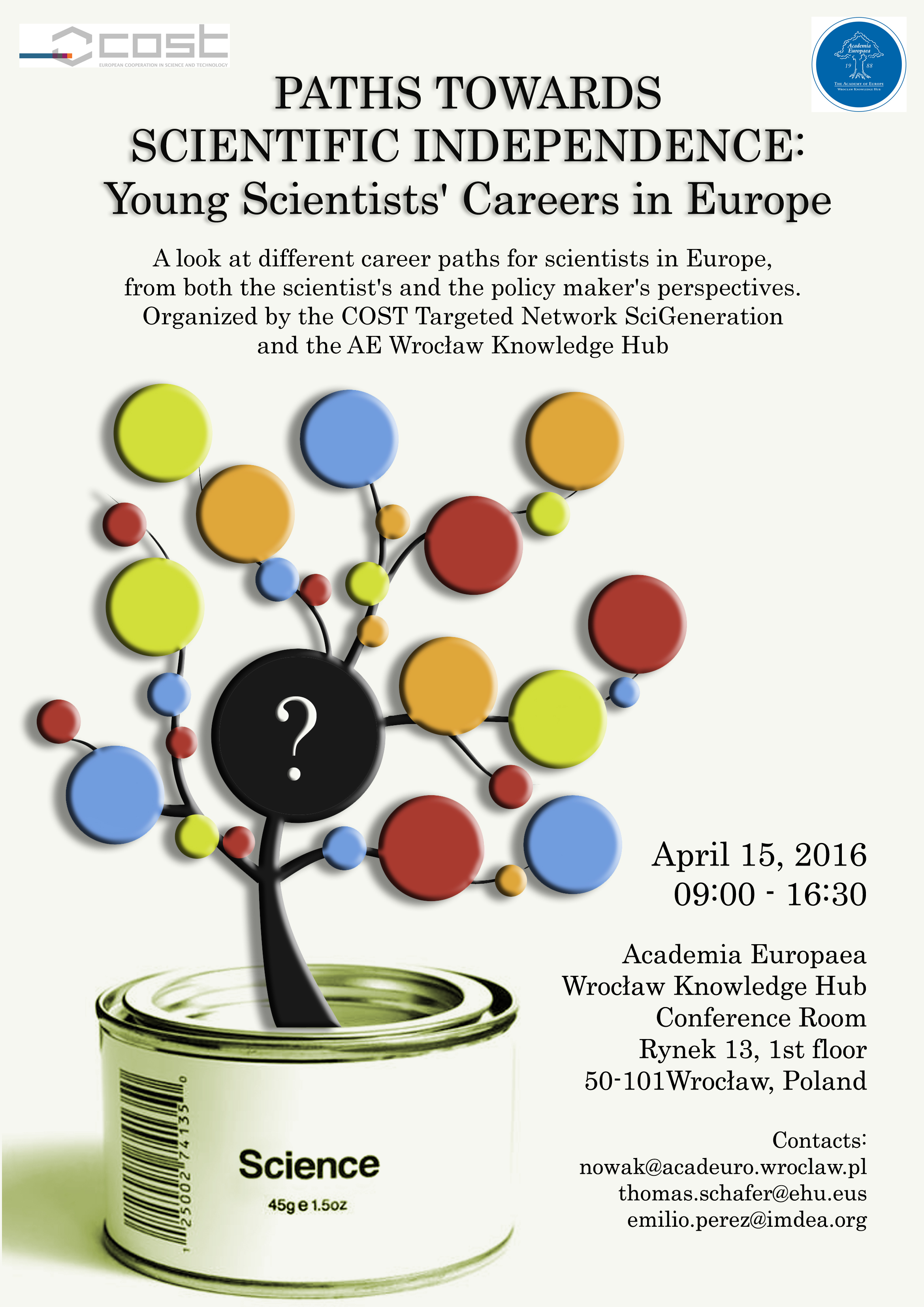

- 9.00 - 9.15 Opening of the Workshop
- 9.15 - 9.45 Dr Gemma-Louise Davies
 , Global Research Fellow, the University of Warwick, Coventry (United Kingdom), Early Career Opportunities in the UK and Ireland
, Global Research Fellow, the University of Warwick, Coventry (United Kingdom), Early Career Opportunities in the UK and Ireland
- Gemma-Louise studied Natural Sciences in Trinity College Dublin in Ireland and remained there to study for a PhD in Chemistry, which she received in 2011. Following a short Postdoctoral Research Fellowship working closely with Industry, she moved to the University of Oxford in the UK as a postdoctoral researcher. In 2013, she took up a Global Research Fellowship at the University of Warwick, where she is setting up her independent research lab. Her research currently focuses on the design of nanomaterials for a variety of healthcare and industrial applications; her main interests lie in the development of multi-purpose MRI diagnosis and targeted stimuli-responsive therapeutic delivery vehicles.
- 9.45 - 10.15 Dr Sebastian Leidel
 , Max Planck Institute for Molecular Biomedicine (Germany), Career paths of young scientists in Germany - between freedom and feudalism
, Max Planck Institute for Molecular Biomedicine (Germany), Career paths of young scientists in Germany - between freedom and feudalism
- Sebastian Leidel studied Protestant Theology in Marburg, Jerusalem and Heidelberg and Biology in Heidelberg and Philadelphia. He then moved as a PhD student to the Swiss Institute for Experimental Cancer Research in Lausanne to study centrosome duplication in C.elegans. After his graduation in 2005 he switched from cell biology to biochemistry and moved to the Institute for Biochemistry at the ETH-Zurich where he worked on the chemical modifications of RNA as a postdoc an later as lecturer. In 2010 he started his independent lab at the Max Planck Institute for Molecular Biomedicine where he continued to study the in vivo roles or RNA modifications. In 2012 he received the ERC starting grant tRNAmodi, to comprehensively study the role of tRNA modifications using systems biology approaches.
- 10.15 - 10.45 Dr Paavo-Petri Ahonen, Counsellor for Education, Ministry of Education and Culture of Finland, Helsinki (Finland), Situational picture of academic and research careers in Finland
- Paavo-Petri Ahonen is working at the Department for Higher Education and Science Policy with science policy tasks as his main duties. In a period of 2014–2015, he was Senior Science Adviser at the Academy of Finland in strategic research area. He has also worked as a Programme Manager at the Academy of Finland for research programmes of e.g. climate change, aquatic research, nanoscience, and electronics. In a period of 2007–2009, he was a Senior Consultant and project manager in a private company Gaia Consulting. Dr. Ahonen’s researcher career (1992–2003, at the VTT Technical Research Centre of Finland) consists of multidisciplinary aerosol technology and materials science research including nanotechnology, drug particles and atmospheric fine particles.
- 10.45 - 11.00 Coffee Break
- 11.00 - 11.30 Dr Ángel Berenguer-Murcia
 , University of Alicante, Materials Institute (Spain), Unlocking a permanent position within the Spanish science system - how to find the key?
, University of Alicante, Materials Institute (Spain), Unlocking a permanent position within the Spanish science system - how to find the key?
- Ángel Berenguer-Murcia studied Chemistry in Alicante. After receiving his PhD in Materials Science in 2005 he moved to the University of Cambridge, where he switched from the synthesis and characterization of zeolite films to hybrid mesoporous thin films for their use as smart surfaces and microreactors, which he did in collaboration with Prof. Evgeny Rebrov at the Technical University of Eindhoven. In 2010 he joined the University of Alicante Materials Institute in the group of Prof. Diego Cazorla-Amorós where he is responsible for the nanoparticles, microreactors, and catalysis research areas. In 2012 he received funding from the EXPLORA program to study the development of nanostructured carbon coatings for emerging applications, which he complemented with a short stay at Tohoku University where he developed novel carbon-based electrodes for ultracapacitors. In January 2016 he became the first permanent researcher of the University of Alicante Materials Institute, where he continues his research on materials design for catalysis, environmental, and energy applications.
- 11.30 - 12.00 Professor Mihai Girtu, Ovidius University of Constanta (Romania), Returning to Romania after doctoral studies abroad. What does it take to succeed?
- Mihai A. Gîrţu received the Ph.D. degree in Physics from the Ohio State University, USA. His research interests focus on molecular modeling and simulations of materials with applications in organic electronics and hybrid photovoltaics, molecular magnetism, photocatalytic degradation, and, more recently, in biomedical sciences. He is a member of ΦΚΦ and ΣΧ honor societies, and a recipient of the In hoc signo vinces award of the Romanian National Research Council. He has experience in research policy making and research management, gained while serving as vice-president of the Romanian University Research Council (CNCSIS), as well as in higher education funding, acquired in the course of his term in the Romanian Council for Higher Education Funding (CNFIS). Presently he serves as vice-rector for international relations of Ovidius University of Constanța.
- 12.00 - 12.30 Dr. hab. Artur Bednarkiewicz
 , Wroclaw Research Centre EIT+ (Poland), Early Career Opportunities in Poland
, Wroclaw Research Centre EIT+ (Poland), Early Career Opportunities in Poland
- Artur Bednarkiewicz received his M.Sc. Eng. in Physics and Biomedical Engineering from Wroclaw University of Technology in Wroclaw, Poland in 1993 and a Ph.D. and habilitation in Physics from Institute of Low Temperature and Structure Research, Polish Academy of Sciences (ILT&SR PAS), in 1998 and 2013 respectively. Since 2015 he is an associate professor in the ILT&SR PAS. After postdoctoral research in the European Commission Joint Research Centre, Italy, in December 2008 he returned to ILT&SR PAS and simultaneously established an interdisciplinary team NAOMIS with Wroclaw Research Centre EIT+ focusing on Nanoparticle Assisted Molecular Imaging and Sensing, lanthanide doped nanoparticles, core-shell up-converting nanoparticles as well as on developing novel biodetection and bioimaging instrumentation and techniques.
- 12.30 - 13.30 Lunch
- 13.30 - 16.00 Discussion
Attendance to this event is free of charge.#
- For organizational reasons participants of the meeting are kindly asked to confirm their participation by email to Dr. Aleksandra Nowak

- You can also confirm your participation by phone +48 506 388 101.
Photos#
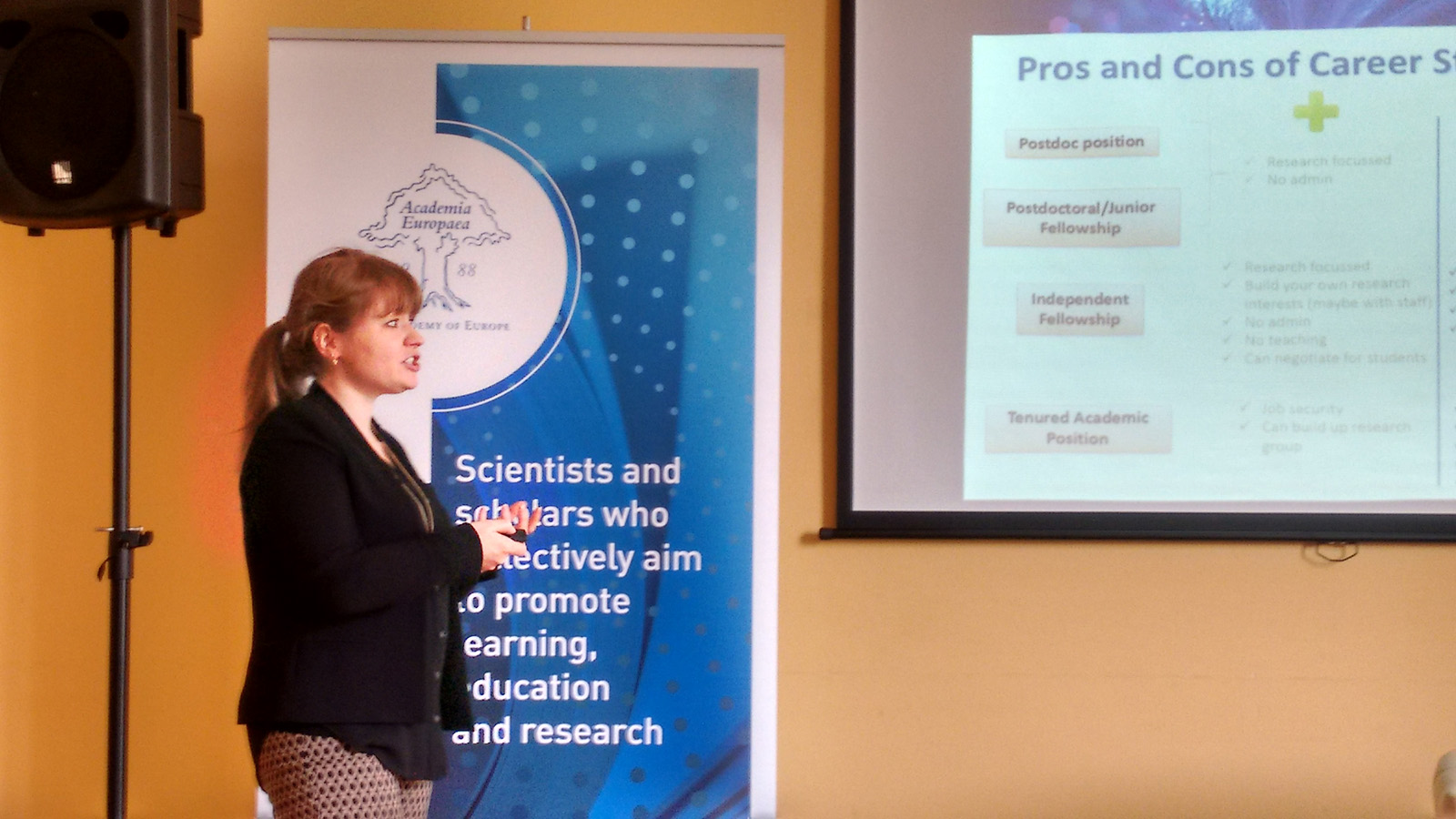
Dr Gemma-Louise Davies
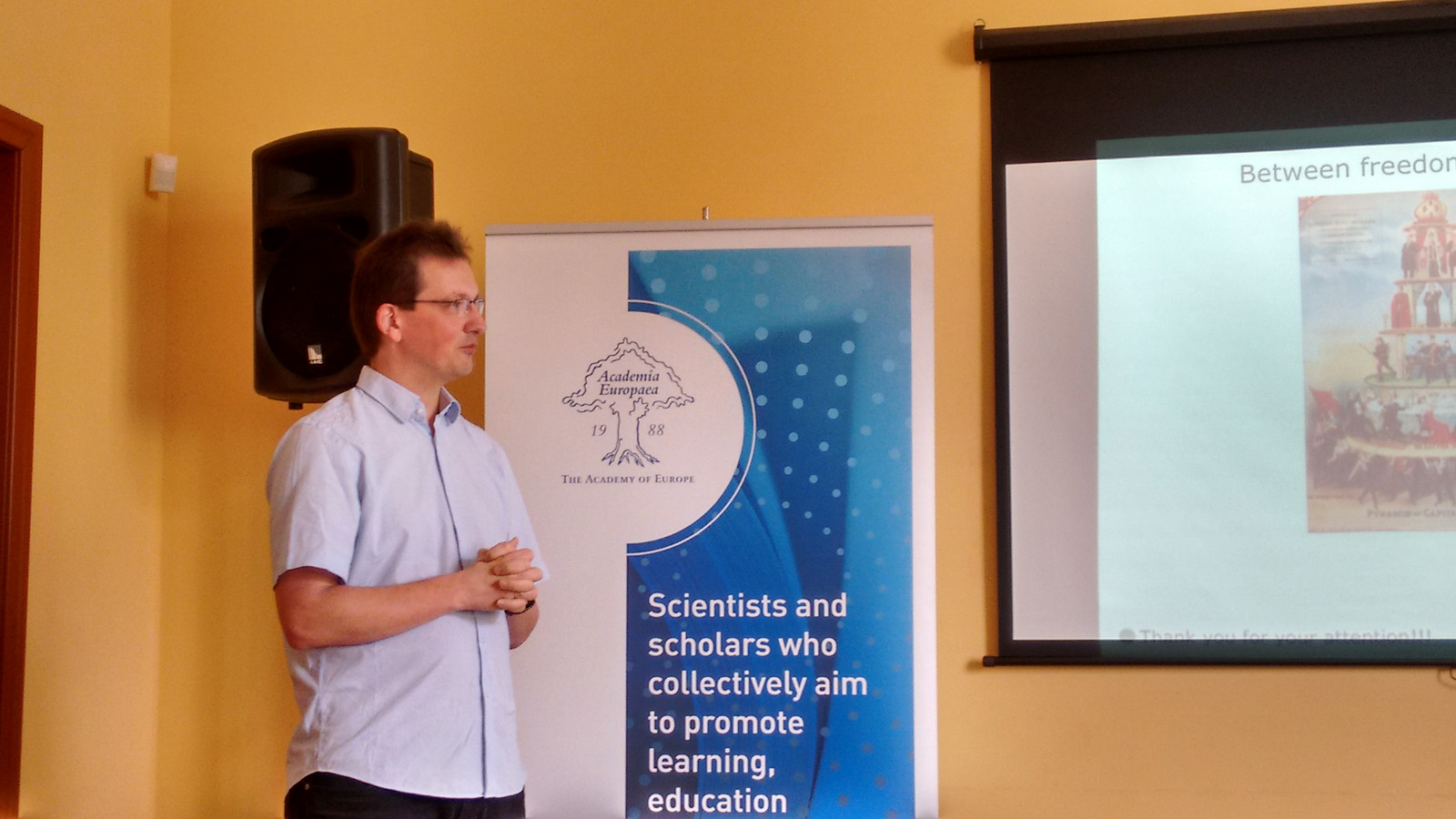
Dr Sebastian Leidel
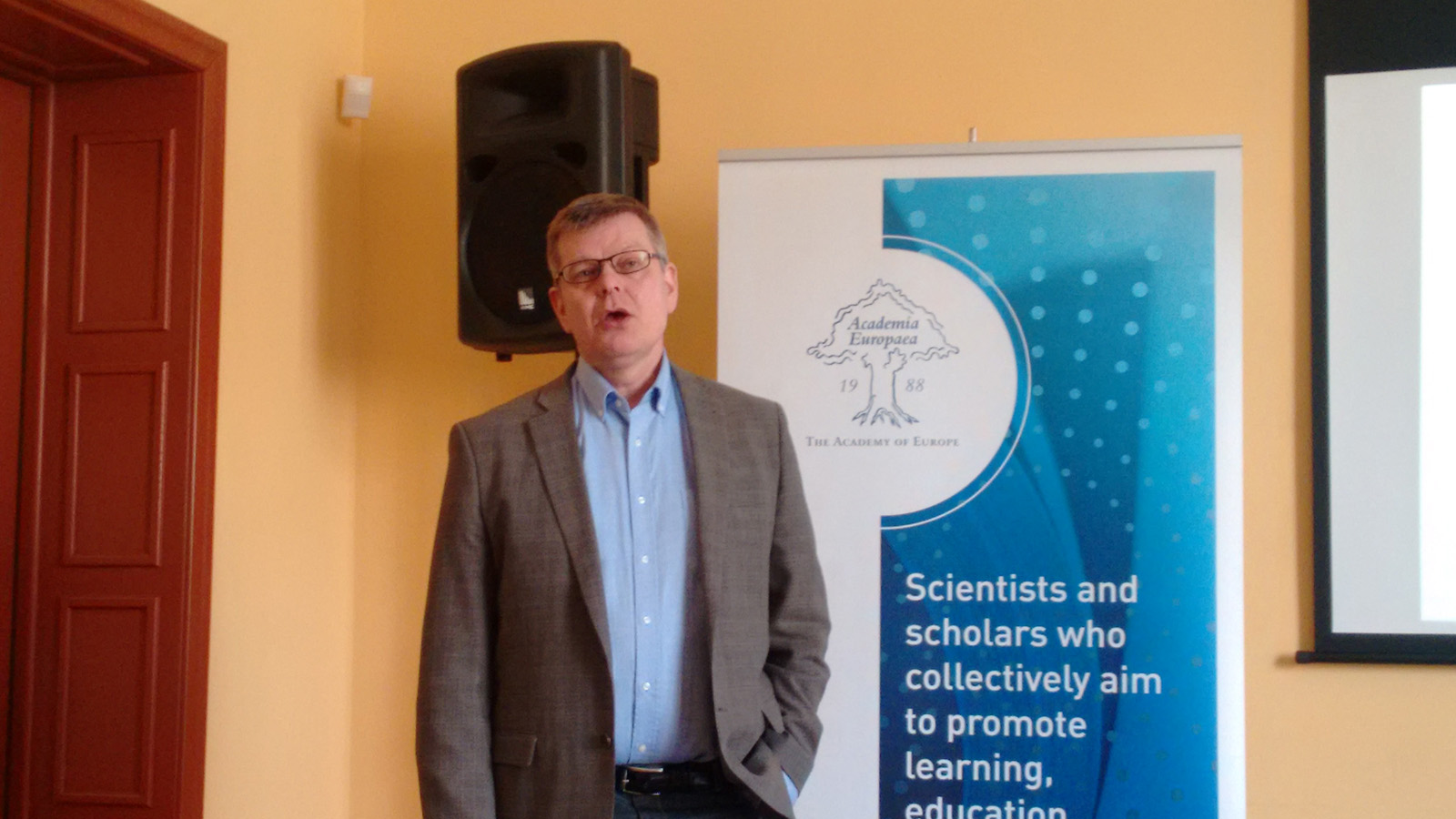
Dr Paavo-Petri Ahonen
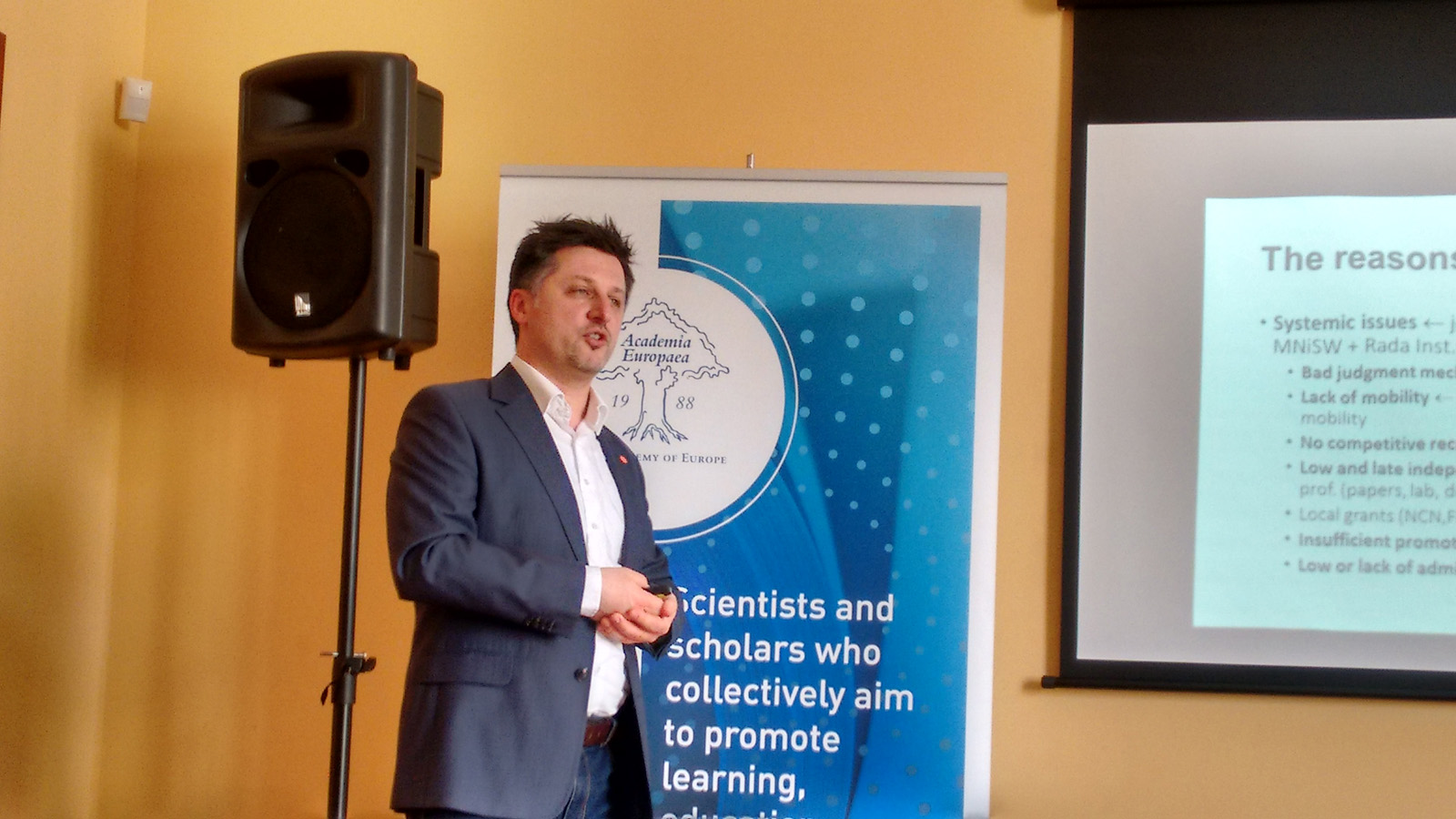
Dr. hab. Artur Bednarkiewicz
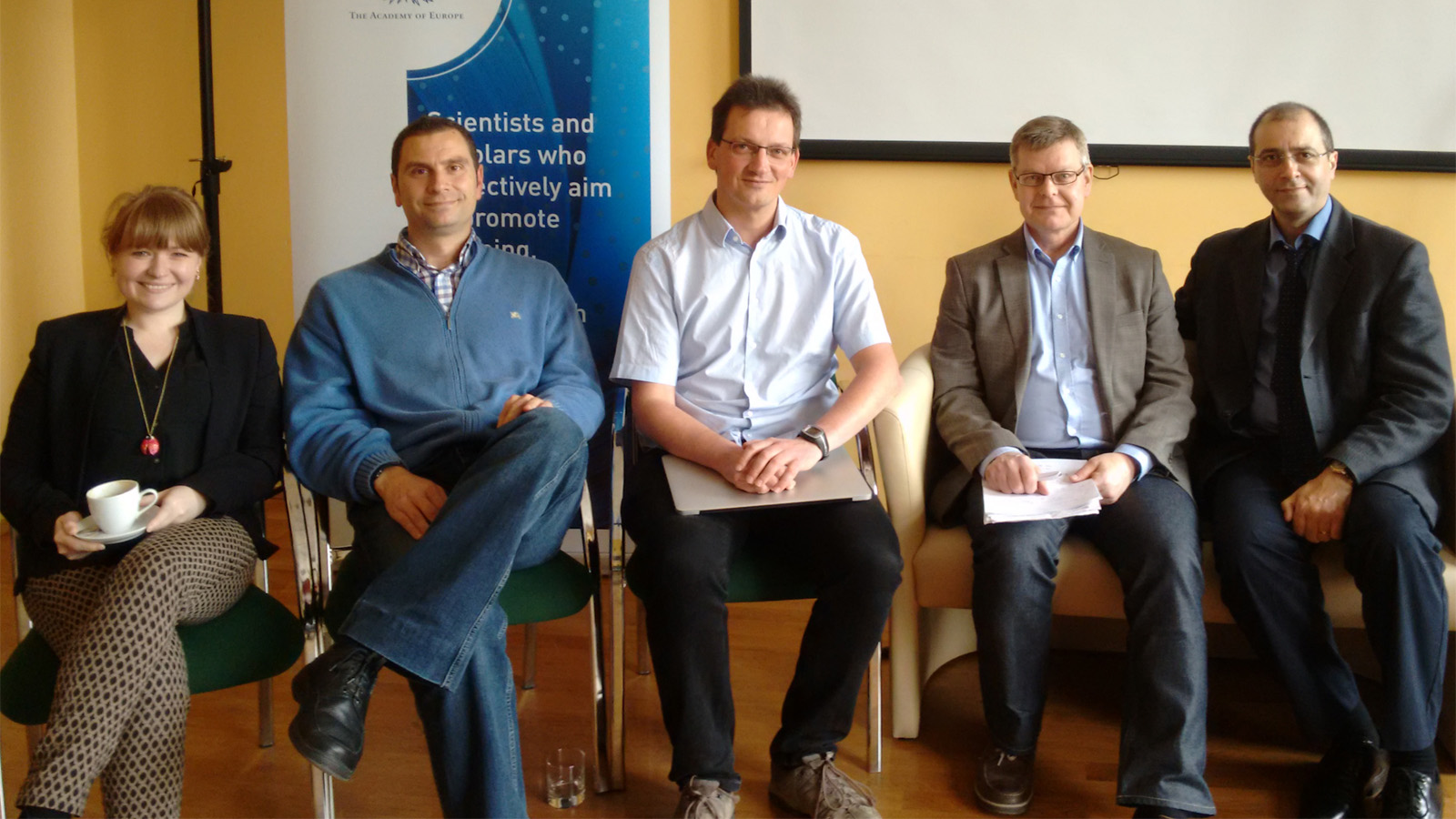
Dr Gemma-Louise Davies, Dr Ángel Berenguer-Murcia, Dr Sebastian Leidel, Dr Paavo-Petri Ahonen, Professor Mihai Girtu


